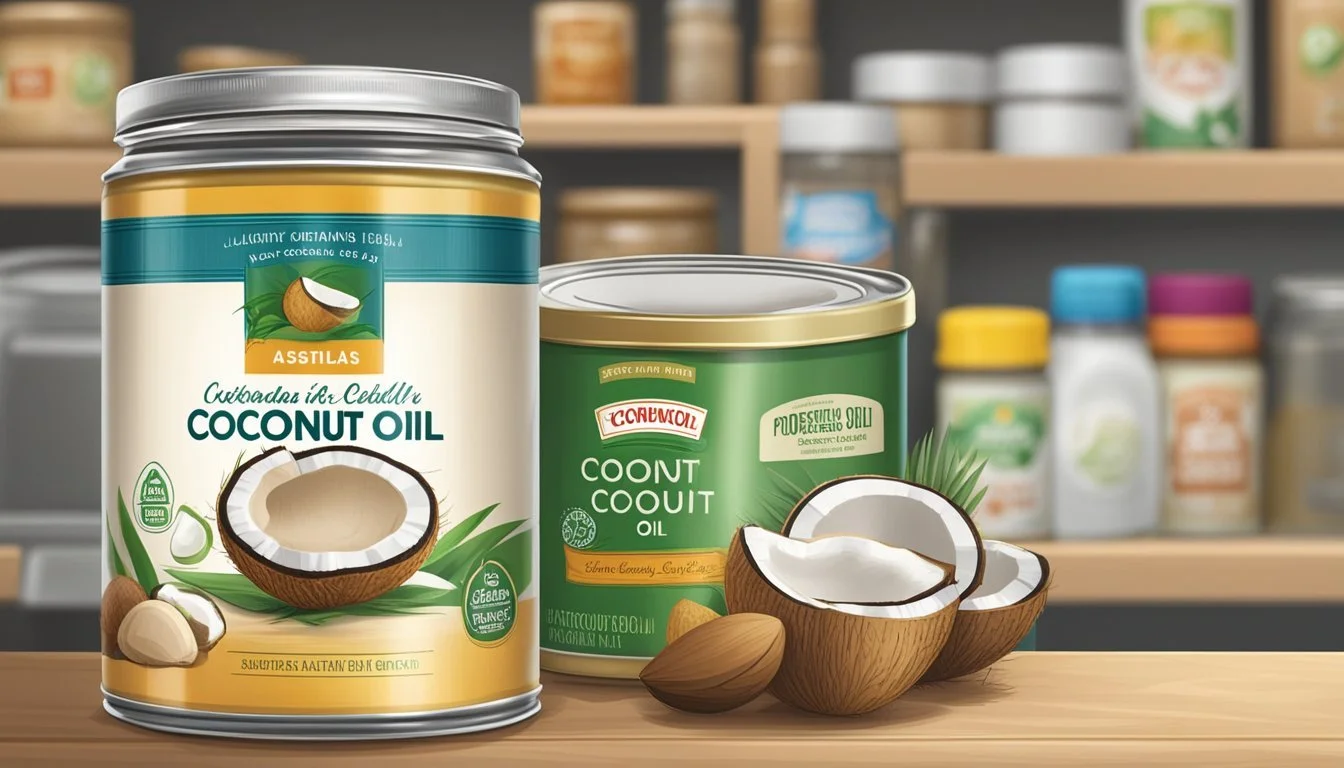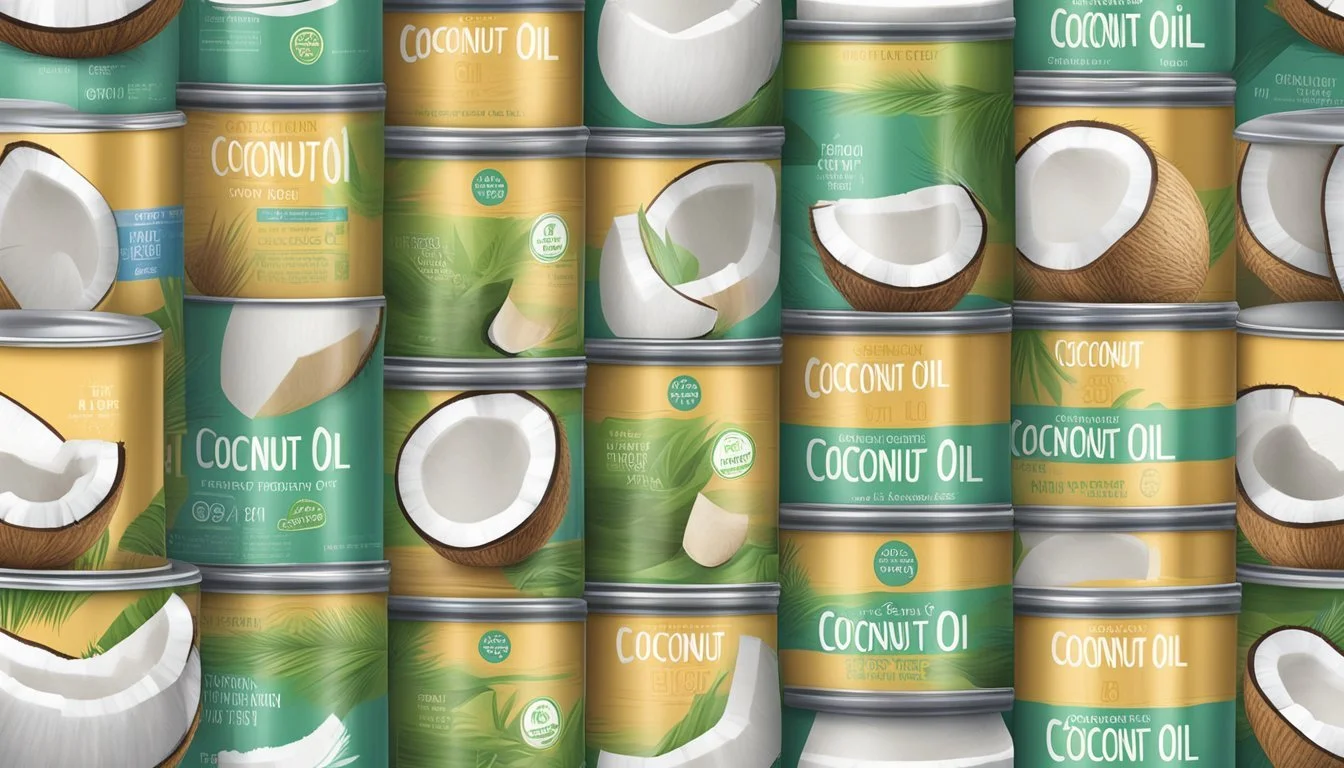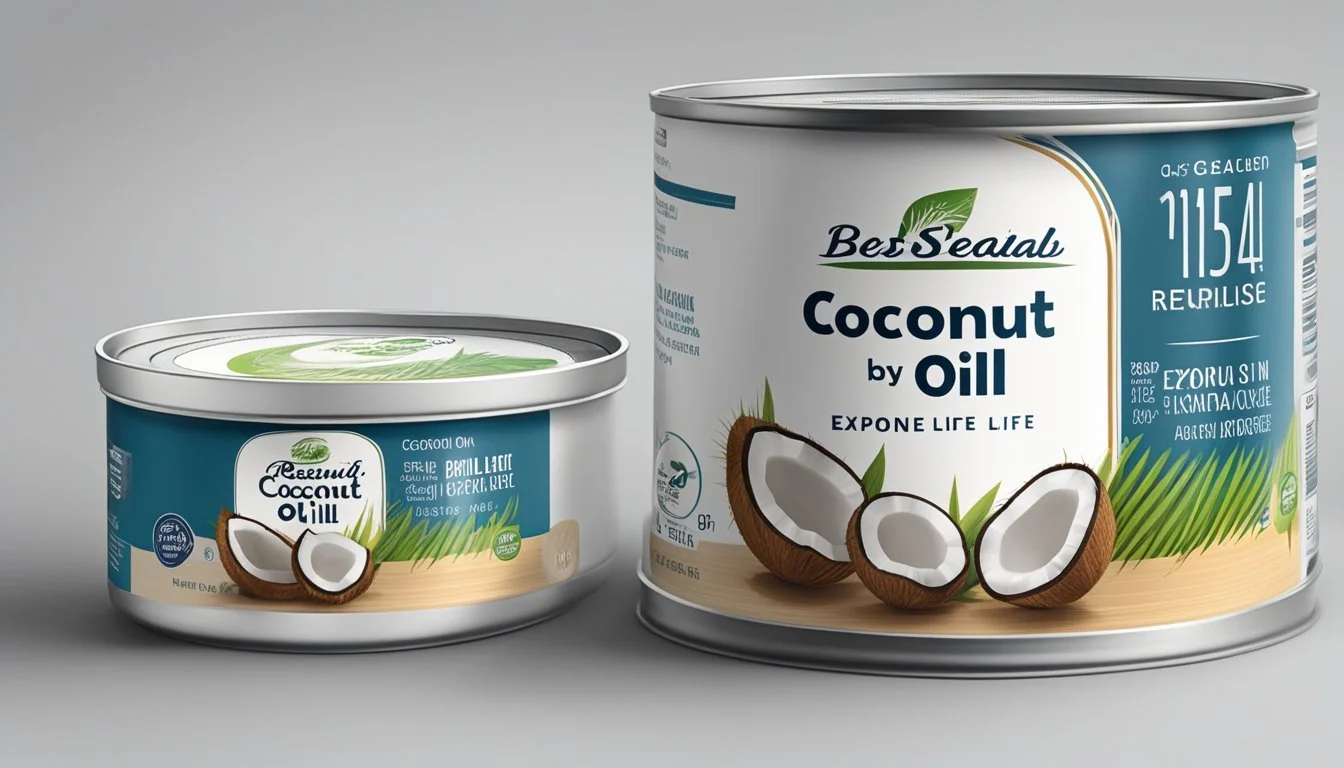How Long Does Canned Coconut Oil Last?
Uncovering Shelf Life Insights
Coconut oil, a staple in both culinary and beauty regimens, is favored for its versatility and the numerous benefits it offers. Known for its long shelf life, this oil is a reliable ingredient that can be stored for extended periods of time. Canned coconut oil, in particular, can last up to 3 to 5 years. The duration coconut oil maintains its quality is influenced by how it is processed and stored. Refined coconut oil, which undergoes more processing, typically lasts about 18 months, while virgin coconut oil, which is less processed, can retain its properties for a considerably longer span.
The presence of natural antioxidants in virgin coconut oil plays a crucial role in extending its shelf life. However, it is essential to store coconut oil in a cool, dark place to maximize its longevity. Proper storage mitigates the risk of the oil becoming rancid, where it develops an off smell and taste that indicate spoilage. Canned coconut oil's shelf life also depends on the seal and the integrity of the canister it's stored in, emphasizing the importance of maintaining the container's condition.
Signs of spoilage include changes in appearance, such as color or texture, a stale or rancid odor, and a sour or bitter taste. Despite being a product that is resistant to spoilage, coconut oil should always be checked for these signs prior to use, even before reaching the expiration date provided by the manufacturer, which serves as a guideline for optimal quality rather than a strict safety limit.
Understanding Coconut Oil
Coconut oil has gained popularity as both a culinary ingredient and a staple in health and beauty regimens. It can be found in various forms, from unrefined, known as virgin coconut oil, to refined versions. This section explores the different types of coconut oil and their nutritional characteristics.
Types of Coconut Oil
Virgin Coconut Oil: Typically extracted from fresh coconut meat, virgin coconut oil is unrefined and retains the natural aroma and flavor of coconuts. It is often produced through a cold-pressed method, which means the oil is extracted without heat, preserving its nutritional properties.
Extra Virgin Coconut Oil: This term is not officially defined in the coconut oil industry but is sometimes used to denote high-quality virgin coconut oil.
Refined Coconut Oil: Refined coconut oil is processed from dried coconut meat, known as copra. During refining, it is bleached and deodorized to remove impurities and the distinct coconut flavor and fragrance, making it more suitable for cooking at high temperatures.
Table 1: Comparison of Coconut Oil Types
Aspect Virgin Coconut Oil Refined Coconut Oil Method of Extraction Cold-pressed Processed from copra Taste and Smell Coconutty Neutral Heat Tolerance Low to Medium High Suitable for Raw usage, low heat cooking High heat cooking, frying
Nutritional Profile
Coconut oil is known for its high saturated fat content, comprising various fatty acids that are believed to affect health differently. The most abundant of these is lauric acid, which can contribute to higher levels of HDL (good) cholesterol in the blood.
Saturated Fat: Typically makes up about 90% of coconut oil's composition, which is higher than most other plant oils.
Table 2: Nutrition in Coconut Oil (per 1 tablespoon)
Nutrient Amount Total Fat 14g Saturated Fat 12g Calories ~120
Although it is rich in saturated fats, coconut oil also contains trace amounts of unsaturated fats and several other compounds such as antioxidants, which may confer health benefits when consumed in moderation. Whether one chooses refined or virgin coconut oil, its nutritional content is a key factor to consider in dietary choices.
Expiration and Shelf Life
Coconut oil is renowned for its long shelf life, but it's not impervious to spoilage. Understanding the expiration date and recognizing when the oil has gone bad are crucial to ensure its quality and safety for use.
Determining Expiry Date
Shelf Life: Generally, refined coconut oil can last for 2-3 months while virgin or extra-virgin coconut oil has a considerably longer shelf life, often remaining stable indefinitely under optimal conditions. The expiration date of coconut oil is typically informed by the best-before date provided by the manufacturer. It's important to note that this date is a guideline for peak quality rather than a strict cut-off point for safety.
Storage Conditions: The longevity of coconut oil is significantly influenced by its storage. To maximize its shelf life, one should store coconut oil in a cool, dark place, away from direct sunlight and heat sources. A constant temperature is ideal, and if the oil is stored below 75°F (24°C), it remains in a solid state, which may extend its usable period.
Signs of Spoilage
The physical attributes of coconut oil can indicate spoilage:
Color: Fresh coconut oil should have a clear or slightly pearly-white hue when solid and be colorless to pale gold when liquid. Any yellowing or other discoloration suggests spoilage.
Texture: It should be uniform in texture. The presence of lumps or a grainy consistency can be a sign of degradation.
Smell: Coconut oil typically has a subtle, sweet, and nutty aroma. A rancid smell is a clear indicator that it has gone bad.
Taste: A fresh, high-quality oil should have a mild, sweet taste. Any sour or bitter flavor hints towards rancidity and spoilage.
Consistent checks of smell, taste, and appearance are recommended to assess the freshness and usability of coconut oil. If any signs of spoilage are detected, it is advisable to discard the oil to avoid the potential unpleasant effects of using spoiled fats.
Proper Storage Techniques
Storing coconut oil correctly is essential to maintain its shelf life and prevent rancidity. An appropriate storage method hinges on temperature control, the avoidance of light and moisture, and proper sealing.
Ideal Storage Conditions
Store coconut oil in a cool, dry place, such as a pantry or cupboard, away from any sources of heat like stoves or ovens. Temperature should be below 75°F (24°C) to keep the oil solid and prevent it from melting. Exposure to excessive heat can degrade the quality of the oil, while exposure to light, especially direct sunlight, can hasten spoilage. It is advisable to store coconut oil in dark-coloured, airtight containers to limit exposure to air and light. Glass jars are preferable to plastic containers, as they don't contain harmful chemicals that might leach into the oil. Always use clean utensils to scoop out the oil to prevent contamination.
Refrigeration vs. Room Temperature
Deciding between refrigeration and room temperature for storing coconut oil depends on climate and personal preference. In cooler climates, or if you prefer a spreadable consistency, storing coconut oil at room temperature is sufficient. However, in warmer climates, refrigeration can help maintain its solidity, as coconut oil melts around 76°F (24°C). If you choose to refrigerate the oil, ensure it is in a sealed container to avoid absorbing any odors or flavors from other foods. A refrigerator setting may turn the oil into a hard block, so some planning is needed when you want to use it as it will require some time to soften. Freezing coconut oil is not generally recommended, as it doesn't significantly extend its life and makes it very hard to use.
Effects of Improper Storage
Proper storage is essential to maintain the integrity of canned coconut oil as it can affect both the quality and safety of the oil as well as its effectiveness for health, diet, and beauty applications.
Impact on Quality and Safety
Improper storage of canned coconut oil can lead to rancidity, a process where the oil begins to decompose due to exposure to light, heat, air, and moisture. This decomposition not only affects the oil's taste and smell but also poses risks for consumption:
Oxidation Process: Prolonged exposure to air and light can accelerate the oxidation of coconut oil, creating undesirable free radicals.
Contamination: Storing in a damp environment encourages the growth of bacteria or mold, potentially leading to contamination.
Spoilage: The breakdown of fats within coconut oil can result in a sharp, unpleasant odor and flavor, indicating spoilage.
Changes in Effectiveness
When stored improperly, the positive attributes of coconut oil can diminish:
Health Benefits: The potential health benefits of coconut oil can be compromised once the oil has gone rancid, with the presence of free radicals reducing its dietary usefulness.
Beauty Toolkit: For those who include coconut oil in their beauty regimen, oxidation and contamination reduce the oil's therapeutic properties, affecting its effectiveness in skin and hair care treatments.
Usage in Cooking and Beauty
Canned coconut oil is a versatile ingredient known for its stable shelf life and a myriad of applications in both cooking and cosmetics. Its resistance to high temperatures makes it a preferred cooking oil, while its moisturizing properties are celebrated in beauty routines.
Application in Recipes
In the culinary world, coconut oil is a staple in many recipes, particularly for baking and frying. It can withstand high temperatures, which allows it to maintain structural integrity when used as a cooking oil. This characteristic also makes it ideal for creating a crisp texture in fried dishes. In baking, coconut oil is praised for imparting a rich, buttery flavor without overwhelming the dish, and it can easily be substituted for other fats to suit certain dietary preferences.
Benefits in Skin and Hair Care
Coconut oil has also found a place in the household as a component in beauty care, heralded for its benefits in skin and hair treatments. When applied as a hair treatment, it has been shown to penetrate the hair shaft, potentially reducing protein loss for various hair types. Many users incorporate coconut oil into their beauty routine for its moisturizing effects, which can be particularly nourishing for dry skin and hair. In terms of weight management, while some have included coconut oil in their diet with the intent of aiding weight loss, scientific consensus on its efficacy in this regard remains mixed. However, its use in moderating skin and hair care is broadly endorsed.
Miscellaneous Considerations
When assessing the longevity of canned coconut oil, one must consider indicators of quality and what to do if the oil has turned rancid. The type of coconut oil, processing method, and storage conditions all play vital roles in its shelf life.
How to Tell If the Oil Is Still Good
To determine if canned coconut oil is still good, consumers should check its appearance, smell, and taste:
Appearance: Pure coconut oil should maintain a clear appearance in liquid form and a uniform texture when in solid state.
Smell: Fresh coconut oil emits a mildly sweet and coconutty aroma. Any off-odors can signify spoilage.
Taste: The taste should be clean and coconut-like. A rancid taste indicates the oil is no longer good.
Dealing With Rancid Oil
Once coconut oil becomes rancid, it's important to discard it due to the breakdown of fats that can lead to unpleasant flavors and potential health risks. Here's how to handle rancid oil:
Proper Disposal: Do not pour rancid oil down the drain. Solidify it, if in liquid form, and place it in the trash.
Storage Tips: To avoid future rancidity, store the oil away from heat sources and in a sealed container to minimize exposure to air and light.








